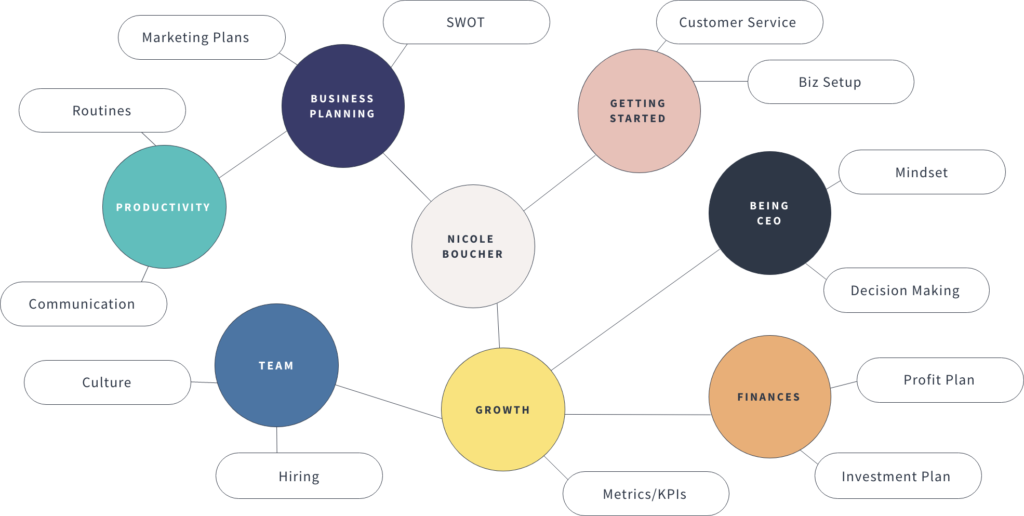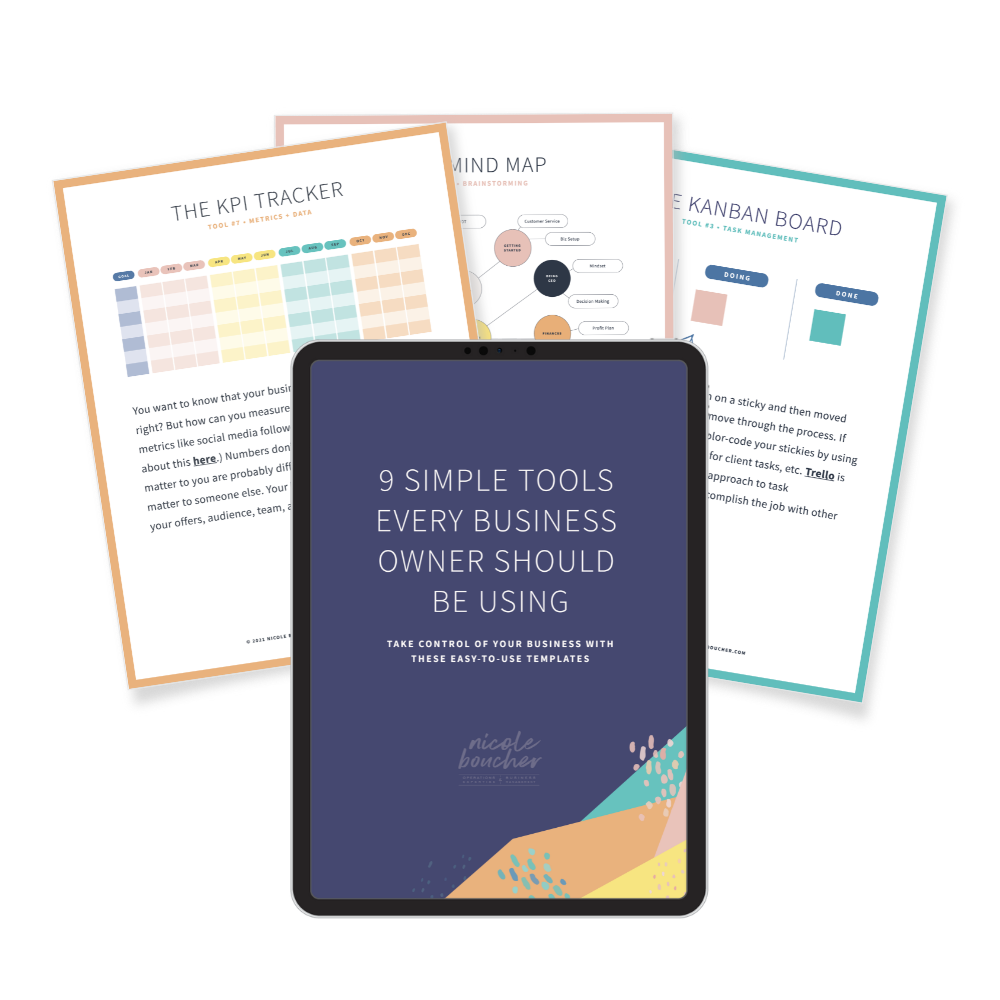When it’s time to create strategies and processes for your growing business, you’re probably thinking, “I don’t have the time to do this.” Things are a mess and you just don’t have time to dig in and clean it all up. But when you think about outsourcing your systemization, you might not have the cash, either.
There are tons of programs, software, and courses that promise to create (or teach you how to create) more efficiency in your business. But how many of those resources have you tried to no avail? That’s just wasted time and money!
I get it, though. The tools that are most expensive might seem the sexiest, or like the most promising. But you don’t have to invest in a pricey program or offer to get things organized in your business. Plus, you probably need less time than you think you do.
“Everything should be made as simple as possible, but no simpler.” – Einstein
I’ve put together a list of four business growth tools that I have found helpful for myself and my clients. These aren’t just preferred tools, though; these are based in my background in project management and business administration.
These free business tools are simple, easy-to-use, and establish smart business practices. (Did I mention they’re free?!)
Four free business growth tools
Kanban Boards and other sticky note task systems
Sticky notes are such a handy tool for organization. They can be put anywhere, moved around, and thrown away when they’re done. They also come in many different colors which allows you to color-code your tasks and easily see what needs to be accomplished each week. This is a quick and time-friendly way to focus on priorities, especially if you’re a visual person.

Aside from the cost of sticky notes, this tool is free! Sure, there are other tools out there that you could use like a journal or simple notepad, but I like sticky notes because they can be moved based on the priority of the task or if you need a special kick in the pants that day.
Mind maps
Have a lot bouncing around in your brain? You don’t need a fancy tool to help you out. In fact, I’d argue that learning a new tool might actually hurt you here. Instead, you can create a simple mind map for free using paper and pen.

You can use mind maps to brainstorm new product ideas, what you need to include in your next course, your marketing content, or even for taking notes in your next meeting. The beauty of the mind map is that it replicates how information runs through your brain… an idea sparks, you have a few spin-off thoughts around it, and oh, wait, another idea comes to life!
There are free and paid digital mind map tools out there, but I have yet to find something that beats pen and paper. If you prefer to go digital though, my recommendations are draw.io and lucidchart.com.
KPI trackers
When you know your numbers, it’s easy to see where things are working and where they’re not. Key performance indicators (KPIs) are metrics that show the progress of your business — and the numbers don’t lie. One of the best free business growth tools out there is simply selecting KPIs that, well, indicate performance.
That could be revenue but it could also be Instagram growth, podcasts booked, downtime in your schedule, etc. Choose KPIs that align with your goals for your business. It just involves a bit of tracking using tools already at your disposal, like Instagram insights, web traffic trackers, and income/expense sheets.
Not sure which KPIs you should track? Want to make sure you’re keeping track? Use my FREE KPI tracker.
Voice of the Customer exercises
Knowing what your customers want and need is #1 to designing a service or product that customers will actually purchase. That’s why Voice of the Customer exercises are so important—they can help you determine how your customers talk about your product or service (or explain their pain points or challenges) which in turn influences how well you can sell.
One of the most well-known VOC exercises is the customer survey. It’s where you ask your customers or audience questions that let you know:
- How they talk about your products or solutions
- How they feel before, during, and after using them
- How they like or dislike certain aspects
- What they expected to receive and how it differs from what they actually received
You can also look through the emails you’ve received and comments you get on social media (tip: you can also look at competitors’ feedback and comments) to see what they’re saying.
How does this free tool make your business more efficient or help it grow? Well, knowing your customers will make your marketing stronger. Your audience will see that you “know” them and even “speak their language.” That creates a strong brand and a loyal customer base. Of course, all of that means more growth for your business. Boom.
Want more free business growth tools
I’ve been behind the scenes of dozens of digital businesses, from physical product shops to info-product sellers, course creators, coaches, and service providers. There’s one similarity among the more successful ones: they use tools to cut down on the chaos and help them run their businesses smoothly. However, finding the right tools can depend on your personal organization style and your business model and size.
That’s why, in addition to these four free business tools I just shared, I’ve created a free guide to help you even further.

In this free guide, 9 Simple Tools Every Business Owner Should Be Using, I’m sharing nine tools that I’ve seen used consistently to help my clients grow successful businesses without breaking the bank. I also help you break down whether or not a certain tool is right for you.
Download this free guide today and find the tools you need to streamline, optimize, and grow your business in less time and for way less money.
Be the first to comment